|
|
By Sally Hara, on March 13th, 2014%
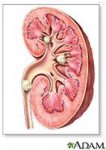 1. DRINK ENOUGH FLUIDS.
Drinking enough fluids each day is the most important thing you can do to prevent kidney stones.
This prevents substances in the urine from concentrated enough to form stones. The current recommendation is to drink 2 to 3 liters (34 to 68 fluid ounces) of fluid each day. Water is . . . → Read More: Dietary Habits to Help Prevent Kidney Stones
By Sally Hara, on June 20th, 2012%
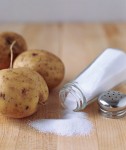 Anyone planning on participating in a marathon, triathlon, century ride, long hike, climb, or other endurance event this weekend or in the near future?
Here are a few quick tips for those of you who are carb loading for an endurance event: Start increasing your carbohydrate intake 3 to 4 days before the event. True . . . → Read More: Carb-Loading Tips (and other nutrition hints for endurance events)
By Sally Hara, on June 5th, 2012%
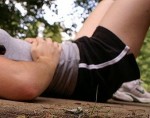 Athletes may experience gastrointestinal (GI) problems resulting from food intolerances that are directly related to exercise and which are not a present when not exercising. . . . → Read More: Exercise-Induced “Food Intolerances”
By Sally Hara, on May 21st, 2011%

by Sally Hara, MS, RD, CSSD, CDE
Preparing for a hike or climb includes more than making sure that you have the right clothing and gear. To really have a successful and enjoyable adventure, you also need to ensure that your body is optimally fueled and hydrated. It’s not that there . . . → Read More: Fueling for Hikes and Climbs
By Sally Hara, on April 19th, 2011%
 I was recently asked if there are certain sports drinks that I prefer over others. There are actually several sports drinks that I like, use, and recommend, depending on the type, duration, and intensity of training, environmental conditions, and individual considerations for each athlete. It seems like there are new products coming out every . . . → Read More: Sports Drinks: What’s in your bottle??
By Sally Hara, on December 28th, 2010%
 Nutrition Challenge #2 is to drink at least 64 oz. of water each day. How are you doing? Here are a few tips to help you reach this goal:
Keep several water bottles around for easy access. Keep one at your desk, one in your car, one by your favorite chair at home, etc. . . . → Read More: Tips for Staying Well-Hydrated
By Sally Hara, on December 21st, 2010%
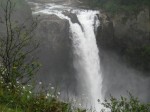 Here in the Puget Sound area we are surrounded by water..and have no shortage of rain. BUT…are you drinking enough water to optimize your health (and athletic performance)? How much IS enough?
The standard recommendation has always been to consume at least eight 8-ounce glasses of water each day (or 64 oz./day). The truth . . . → Read More: Nutrition Challenge #2: Water, Water Everywhere..
By Sally Hara, on November 28th, 2010%
 There are basic sports nutrition principles for recovery after exercise lasting 90 minutes or more. The body needs to be supplied with appropriate fuel and fluids to replenish carbohydrate stores (glycogen), optimize muscle tissue repair, and adequately replace fluids and electrolytes.
The most important fuel needed for recovery is carbohydrate. Most athletes need about . . . → Read More: Recovery Nutrition on Cold Days
By Sally Hara, on October 7th, 2010%
 What would happen if an athlete showed up to practice without the proper equipment? What if a tennis player forgot her racquet, a soccer player forgot to bring cleats & shin guards, or a football player forgot his protective gear? Most coaches would not only notice, but would likely require the athlete sit the . . . → Read More: Pre-Exercise Nutrition – Questions Coaches Should Ask
By Sally Hara, on August 18th, 2010%
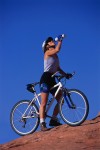 What are electrolytes and why do sports nutrition experts recommend them for athletes? Are they some kind of super energy source? Why is a sports drink containing electrolytes any better than plain water? To best address these questions, it will be helpful have an understanding of the function of electrolytes in the human body.
. . . → Read More: Electrolytes Can Charge Athletic Performance
|
|











